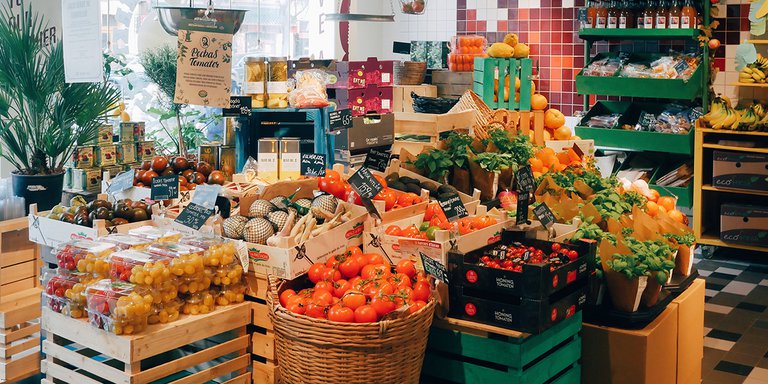Why foodtech is growing fast in Stockholm
Publish date: 18 February 2019
Stockholm is transforming: the concrete jungle is turning into an urban oasis. Local food producers with innovative ideas and sustainable plans are changing the food market for good. "The food consumed in Stockholm is quite often produced close by, you just don’t know it", says Lovisa Madås, founder of AGFO.
Locally grown foods, innovatively produced and climate-conscious are the way forward – for foodies and the planet. Stockholm is at the forefront of a food tech revolution, with technical solutions for the food ecosystem helping improve what's on offer at deli counters and restaurants all over the city.
The concept of food tech entails modernizing and developing the way we produce, distribute, and consume food. Sustainability, health, and innovation are key concepts linked to how we want to eat today. And Stockholm is fast becoming a food tech destination.
"In Stockholm, we live and breathe change. We love to try new things and development is considered a key to living a fulfilling life", says Irena Lundberg, Business Development Manager specializing in food tech at Invest Stockholm.
By popular demand
Examples of Stockholm foodtech in practice range from new circular indoor farming and aquaponic fish tanks, to small companies making kombucha in a garage. And more and more locals seek out and take pride in knowing exactly where their food comes from and how it was made.
Food markets such as Urban Deli, Happy Food Store, and the Stadshandel Shop are just a few places in central Stockholm that offer homegrown, sustainable, and delicious products.
Henrik Sjöblom Adsten, sales manager at Urban Deli, has seen a dramatic rise in popularity for locally produced food and drink.
"We try to offer as much locally grown and produced as possible. From the more established such as beer from Pang Pang-brewery in Hökarängen in the south of Stockholm to the up and coming like honey from the forests at Stora Skuggan", says Henrik Sjöblom Adsten.
Close to home
Foodtech is not just a buzzword for locally grown produce. In many cases, new technology is used in farming and production. One technology flourishing in Stockholm is vertical farming; the practice of producing food in vertically stacked layers – often indoors and in former industrial environments. The Stockholm-based company Grönska grows vegetables in an old heating station in Hammarbyhöjden and is fast expanding to an industrial scale. Urban Oasis produces microgreens in the underground of Liljeholmen and collaborates with restaurants and hotels to create their microgreen cabinets.
Then there are digital services that enable food producers to sell their products in ways that cut out the middleman. There are approximately 30 such services active in Sweden, with more to come.
Lovisa Madås is the founder of AGFO, Sweden's media platform with a focus on the food system of the future.
"It’s all about having a relationship to what we eat", says Lovisa Madås. "The food consumed in Stockholm is quite often produced close by, you just don’t know it, and more and more food production is developing within the city".
Lovisa Madås is optimistic about the future.
"To be able to trace food and food production is going to become even more important in the future. No one is going to want to serve something they don’t know where it came from or know nothing about".
